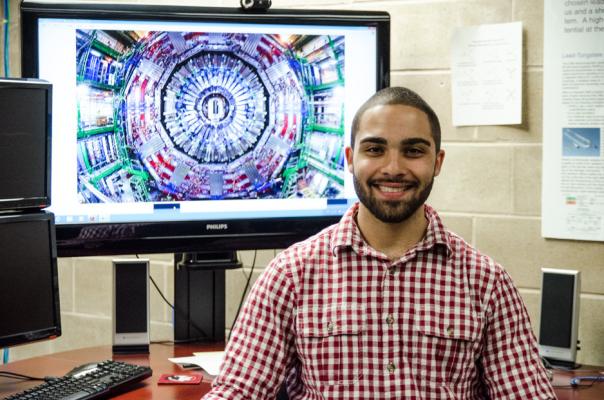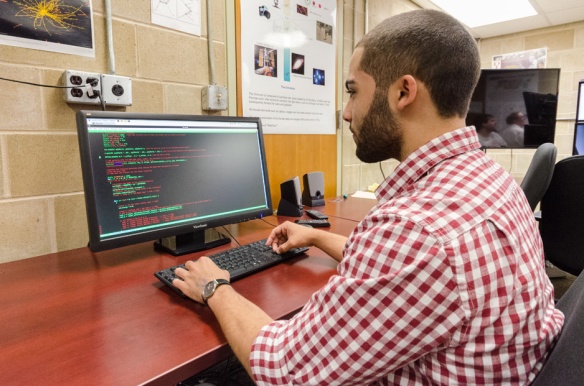For this FSU Physics undergrad, particle physics research and a cutting edge teaching experience on the road to a career in patent law.
By Paul Cottle, Florida State University, June 24, 2015
Austin Skeeters is having the sort of undergraduate experience you'd expect a first-rate physics major to have at one of the leading university physics departments in the southeastern United States. He is involved in a research experience in which he is helping to design an upgrade for a half billion dollar detector at the world's leading particle physics facility - the LHC at CERN. He had an experience as a "learning assistantship" instructor in the department's studio physics program that transformed his notion of the nature of teaching and learning.
But his career goal may come as a surprise to many: Patent law.
Austin is using computer simulations to find a new material to replace the Lead Tungstate crystals in the CMS detector. The present crystals have sustained radiation damage from the experiments that have been run so far - the experiments that identified the Higgs Boson.

Austin also tried his hand as a learning assistant in the Spring of 2014, an experience in which he learned not to see students as "blank slates that I had to approach like robots to be programmed." Instead, Austin realized "that we are all simply people, and in order for either party to benefit, effective communication is a must, regardless of who is `in charge'." He will serve as a learning assistant again in the Fall of 2014.
Austin's intended career in patent law isn't that uncommon. Another recent FSU Physics grad, Jared Doster, is in law school preparing for the same career. To qualify for the Patent Bar exam, a candidate must have an undergraduate major in science or engineering field.

And according to the American Institute of Physics, physics majors rank among the leaders on the Law School Admissions Test (LSAT). The average score of 162.1 among physics majors is only a smidgen behind the average for math majors (162.2) and is significantly ahead of the 3rd highest major, economics (159.1).

